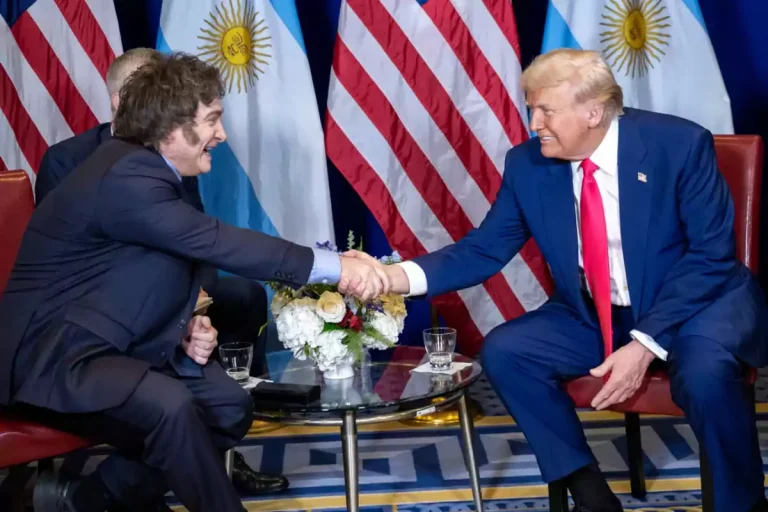🎧 Listen to This Article
In a potentially transformative development for Argentina–U.S. trade relations, President Javier Milei’s administration has reportedly reached a zero-tariff agreement with the United States under President Donald Trump. Though the deal has not yet been formally announced, local Argentine media—citing senior government officials—suggest that up to 80% of Argentine exports will benefit from full tariff exemption, excluding key raw materials such as steel and aluminum.
The agreement, if confirmed, would represent a major shift in U.S. trade policy toward the region and position Argentina as a preferred economic partner amid a broader recalibration of Washington’s international trade strategy.
Key Details of the Reported U.S.–Argentina Zero-Tariff Agreement
- Scope of Exemptions: The deal is said to cover approximately 100 Argentine export products, with tariff-free access granted to up to 80% of Argentina’s total exports to the U.S.
- Excluded Sectors: Raw materials, specifically steel and aluminum, are reportedly excluded from the exemption.
- Reciprocity: While framed as a reciprocal agreement, details on U.S. exports benefiting from reduced tariffs in Argentina remain unclear.
- Announcement Timing: The official announcement is reportedly delayed until after August 1, pending the Trump administration’s broader review of new tariff regimes targeting other countries.
According to sources, President Trump aims to present Argentina as a “model case” in Latin America—highlighting Milei’s pro-market stance and ideological alignment with U.S. priorities—as part of a broader strategy to differentiate allied nations from adversaries under his evolving America First trade doctrine.
Differentiated Tariff Regimes Across Strategic Partners
The reported Argentina deal contrasts sharply with the Trump administration’s trade posture toward other nations. Brazil, for instance, has faced up to 50% tariffs in retaliation for what U.S. officials describe as anti-dollar rhetoric, political instability, and concerns over judicial due process.
In fact, the Trump administration has already imposed unilateral tariffs on over 20 countries, ranging from 10% to 50%, and is currently engaged in tense negotiations with the European Union, which has yet to secure any exemptions.
This suggests a tiered strategy in U.S. tariff policy—favoring countries with aligned economic policies and political philosophies, while penalizing others viewed as strategically misaligned.
Trade and Tax Implications for Argentina
From a fiscal and trade perspective, the zero-tariff agreement could be a substantial boost to Argentine exporters, especially in key sectors such as agriculture, food processing, and manufactured consumer goods, which stand to gain immediate cost advantages in the U.S. market.
For Argentina—grappling with inflation, currency volatility, and structural economic reforms—expanded market access without tariff barriers may improve export revenues, stimulate foreign direct investment (FDI), and strengthen bilateral relations with the U.S., its second-largest non-Mercosur trading partner.
However, the deal’s exclusion of raw materials tempers some of the potential gains. Argentina’s steel and aluminum industries remain globally competitive, and their omission from tariff relief suggests continued exposure to global price and tariff volatility.
Political and Economic Significance
The reported agreement reflects President Milei’s commitment to liberalizing Argentina’s economy and reestablishing credibility with international partners. It also underscores the Trump administration’s use of targeted trade incentives to reward countries aligned with its economic and geopolitical vision.
If formally ratified and enacted, the U.S.–Argentina zero-tariff deal could serve as a template for future bilateral agreements and shape a new framework for hemispheric trade cooperation—distinct from multilateral institutions like Mercosur or the WTO.
Whether this bilateralism proves to be economically durable or politically sustainable remains to be seen. But for now, the deal offers Argentina a rare advantage in a global trade environment increasingly shaped by strategic realignment and selective tariff enforcement.
For further details, clarification, contributions, or any concerns regarding this article, please get in touch with us at editorial@tax.news. We value your feedback and are committed to providing accurate and timely information. Please note that our privacy policy will handle all inquiries.



